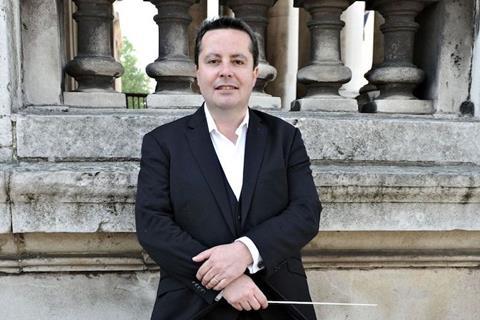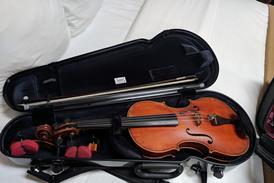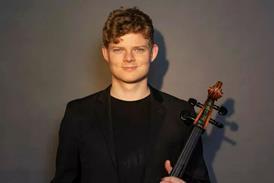The Covid Pandemic has made many artists and organisations rethink how they connect with their audiences. Thomas Kemp - Artistic Director of Music@Malling - gives ten tips to create a successful festival online.

1.Vision, identity and continuity
When taking an organisation online, it is important to reflect your vision and identity clearly in everything that you present. There is a myriad of content online and so having imaginative programming and eye-catching branding is vital. Your content needs to be distinctive to stand out. For an established organisation or artist, providing continuity with what you have built up is key so that you can bring your existing audiences with you whilst developing new ones online.
2. Digital infrastructure
Develop a website that acts as a hub for your activities and keeps people returning. Prior to the pandemic, our Music@Malling website was primarily a box office for an annual festival, provided news of special events and details about our outreach programme. It was generally used by people that already knew about our work!
During the lockdown, I had time to research and reflect on ways to digitally connect with existing and future audiences and this led to the redevelopment of our website. Our website is now regularly updated with fresh content which includes curated series, playlists, an online shop, news, interviews and a blog. This approach sustains interest in our work throughout the year and is currently engaging a much wider audience.
3. Embrace social media
Social media is a terrific way to connect with people and attract new audiences to your website. By doing some research, you can optimise your posts to reach different audiences and organisations. Having photographs, videos and fliers are essential and this should link in with your branding and website. Message regularly but try not to be repetitious with what you say or who you link. It should not be a relentless sales drive as people switch off and some of it should definitely be fun!
I try to have a segmented approach - targeting audiences according to repertoire and genre and vary posts according to whether they have a local, regional or national audience. As a festival with locational identity, I factor in tourism - pubs, restaurants, places to visit and local businesses - so the social media is not just about music.
4. For Free or not for Free?
Decide what can be free and what you can charge for - it is important that the public understands that music costs money to put on and musicians have bills to pay too!
In October 2020, Music@Malling had an online festival which included free events - talks and outreach - as well as concerts that were behind a paywall. Crucially, all our events can be viewed on our website. This is important as it keeps people returning to the website and encourages audiences to engage with its content.
5. Live or pre-recorded?
It is imperative that everything you do that goes online is of the highest quality in terms of sound and vision. To do this properly, you have to have an engineer, producer and camera operators.
All our concerts were pre-recorded without an audience but were designed to feel and sound as if you were actually there. Everything was recorded in straight takes with no editing: a half-way house between a live performance and a studio recording which takes getting used too - as does performing without an audience.
In the future, we hope to do live events online so that there can be interaction with social media and interval events that bring the online audience closer to the performers.
When audiences eventually return to our concerts, all our events will also be available online. This will enable us to expand our audiences and increase our box office.
This will be a game changer particularly for small venues where there is limited physical capacity. For example, one of our venues is the only church in the world to have complete Marc Chagall windows - but it only has capacity for 80 audience. This stunning venue suddenly becomes much more viable with streaming.
Read: Top 10 tips for monetizing classical music online
Read: 10 tips for profitably teaching music lessons online
Read: What does it feel like to give an online chamber concert?
6. Data Crunch
One of the great advantages of embracing digital is that you can keep track of analytics which should inform about how well you are getting your message across and ticket sales. The information you get from this is vital for fundraising as it gives you accurate figures about the audiences you are reaching plus where they are from. With online ticketing, you can develop mailing lists from people’s details in compliance with general data protection regulations. Having a monthly newsletter is another way of keeping contact with your audiences and these can be interactive.
7. Funding
Being able to articulate what you do is crucial to secure funding. Many trusts, foundations and sponsors are now looking to support digital content so being on top of how you implement your artistic ideas online is vital. You need to be able to show who you are reaching and how. You also need to show that you can reach people that would not otherwise have access to high quality artistic events.
8. Keep it simple
One of the most daunting things for many musicians is the bewildering choice of platforms, programmes, devices, apps that exist in the digital world. Take advice. Find out how different age groups engage with digital and always keep your offer as simple as possible to use and engage with.
Cut through the jargon attached to digital and don’t be put off by those convinced of its invincibility! It will take time for everyone to get used to navigating digital content but it is our job to be aware of new developments that help get our music out there.
9. Collaborations
The Pandemic has been spectacularly good at keeping people apart. One of the benefits of digital is that you can reach out to new people and develop collaborations which extend across geographical borders. In the future, it will enable genres that would otherwise be a niche interest or attract a limited physical audience to have a global platform. The internet potentially could bring together disparate audiences. With Music@Malling our outreach attracted participants nationally and internationally which would not be possible without the internet.
10.Experiment
The key to all of this is to experiment. Don’t be afraid of taking risks. Some things will work and other things won’t. I realised early on in the lockdown that doing nothing was not an option as this would lead to nothing! Take an integrated approach to all aspects of digital so it fundamentally reflects and promotes what you want to say as a musician. Be inventive, embrace digital and incorporate it into your musical life - it is here to stay.
To visit the Music@Malling website, click here.


































No comments yet